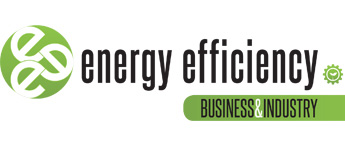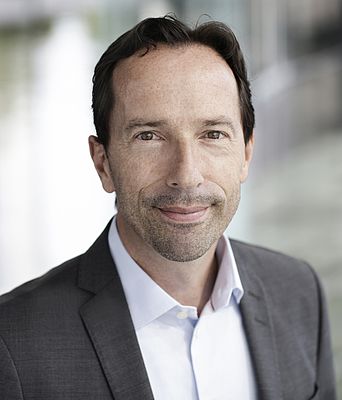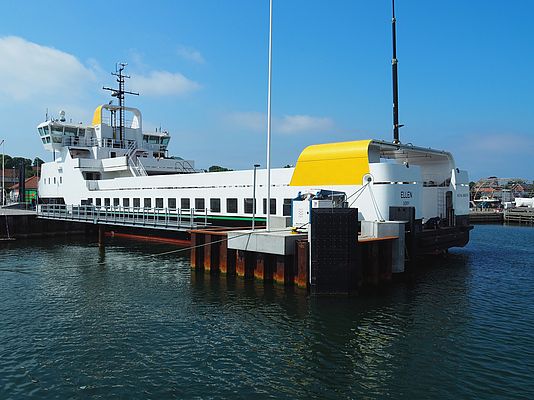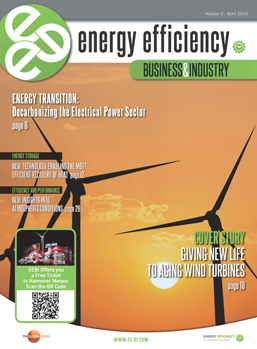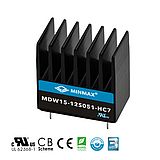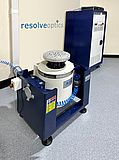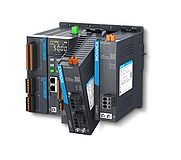EEBI: Could you give us some information on the history of Danfoss? What are the figures and trends of the company?
E. Alström: Danfoss is a family-owned Danish company, founded over 80 years ago. Today, we are still headquartered in Denmark, but we are a global company. We have over 6 billion euros of revenues. Our key markets are Germany, China and the United States and we have four business segments: Danfoss Cooling, in the market of commercial cooling solutions, Danfoss Heating, where among other things we provide heating solutions for multi-family homes and district energy, Danfoss Drives, where we manufacture electric drives to regulate the speed of motors. Lastly, Danfoss Power Solutions (DPS) for which I am responsible, which accounts for about one third of the Danfoss’ total revenue. DPS is a leader in off-highway hydraulics, electronics, software and electrification. The latter also serves the marine industry through our Danfoss Editron division. DPS does not have a head office, instead my leadership team is scattered throughout the world, close to customers and employees. The Danfoss group has over 72 plants worldwide, while DPS has 25 plants across the world.
In my segment, we are experts at hydraulics for machinery that moves, so we don’t do so much in the industrial area with injection moulding machinery for instance. But we supply everything from tractors and wheel loaders to combine harvesters and fork-lift trucks. We are very strong and active in construction and agricultural equipment, materials handling and special equipment like forestry. We do everything in hydraulic systems: electronics, electronic controllers, software, joystick and displays, but also, valves, pumps, motors and orbital motors. This is really our expertise: being a system supplier for the entire machine. Examples of customers would be large global OEMs such as Caterpillar and John Deere, but we also supply many smaller OEMs directly through our vast network of distributor partners.
EEBI: In Europe almost half of the energy is used in the industry. What changes is Danfoss taking in this field?
E. Alström: We take great pride in being very focused on green energy and environmentally-friendly solutions for all the industries we work in. At DPS, we are working on fuel efficiency for machines that today are driven by diesel power, while we are also investing in electrification to become totally green. The other business segments, like Danfoss Heating, Cooling and Drives, are also working on environmentally-friendly solutions. One of our key differentiators as a group is that we are really focusing on always finding a sustainable way. For example, in Europe’s food supply sector where 30% is going to waste, our Cooling segment is working hard to improve that situation and make sure we don’t waste so much food in the supply chain.
EEBI: Talking about electrification, what is Danfoss doing in this area?
E. Alström: Danfoss Editron is the electrification business of DPS and is present in the marine, off-highway, transportation and renewables sectors. The team specialises in both hybrid machinery, so machines that have both a diesel engine and an electric system, and fully-electric solutions in many different applications. For example, the ferry with the longest range in the world is a fully-electric Danish ferry which is powered by a Danfoss Editron drivetrain. We also have many examples of fully-electric or hybrid buses from Asia-Pacific and Europe. This is an area that is growing quite quickly and strongly. Additionally, our colleagues from Danfoss Drives provide power modules for regular on-road electric cars.
EEBI: Talking about UQM Technologies, how was the idea to acquire this leading developer of alternative energy technologies born?
E. Alström: The reason we are so excited to have UQM join Danfoss is because it complements the technologies we already have through Danfoss Editron. Our EDITRON system is very strong in the off-highway and marine markets and the most durable solution in the industry. By adding UQM to the group we will boost our on-highway engineering know-how, which means we can be strong in applications ranging from hybrid to pure electric speciality machinery. In addition, UQM has a good and strong sales footprint in China, which is also an interesting area for us. UQM is also a supplier of hydrogen fuel cell technologies, such as hydrogen compressors for hydrogen applications. This is another exciting addition to the Danfoss portfolio.
EEBI: Sun, wind and biomass are some of the renewable energy sources. In your opinion, which of them is the endgame and will be successful in the long run?
E. Alström: Right now, we have a lot of battery-based technology and that will be a good solution for many applications for many years to come. At Danfoss we are also looking into hydrogen fuel cells, because we believe that’s another way to solve energy storage: you can deduct hydrogen from the fossil fuels, but also get hydrogen from solar or wind power. We think this could be a good future power source of fuel, but for now we are looking at everything. This includes making conventional combustion engine technology better, for instance by adding very-efficient hydraulics which helps diesel engines work at a more optimal burn rate and subsequently reducing fuel and emissions. In addition, we are also working on our hybrid solutions with diesel-electric system. By the way, biomass is also used in agricultural applications which is another source of fuel and another area we are also interested in developing.
EEBI: In your opinion, can we talk about energy 4.0 in relation to Industry 4.0?
E. Alström: I think they are related, but it depends on how you define industry 4.0. If I take the manufacturing field of industry 4.0, it involves a lot of efficiency gains in manufacturing, assembling and correction equipment etc,, as well as more transparency in the supply chain. There could potentially be direct green or environmentally friendly benefits by doing this, but having plants that are more efficient and better structured, plus having suppliers who are more involved in the supply chain than they are today, will of course improve sustainability. At Danfoss, we have a lot of assembly equipment and when we come with a new generation, we always ensure that it’s 30-60% more energy efficient than the previous one, which leads to more energy efficiency throughout the areas where we work. It’s a broad topic that we are certainly focusing on.
Marta Roberti
m.roberti@tim-europe.com
